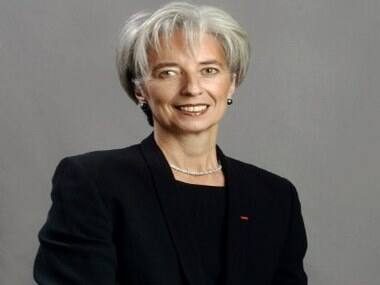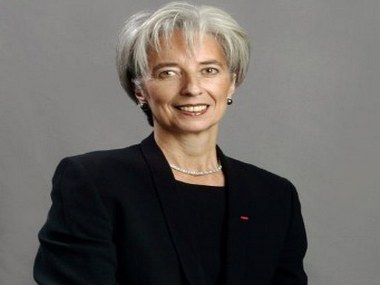Washington/Paris: France’s finance minister entered the race on Wednesday to head the IMF and succeed the fallen Dominique Strauss-Kahn, despite anger in big emerging economies over Europe’s “obsolete” lock on the job.
Christine Lagarde announced her candidacy on the eve of a G8 summit of industrialised countries in Deauville, France, after securing the unanimous backing of the 27-nation European Union and, diplomats said, support from the United States and China. “It is an immense challenge which I approach with humility and in the hope of achieving the broadest possible consensus,” Lagarde told a Paris news conference, saying she planned travel widely in the coming weeks to consult other member states.
[caption id=“attachment_15254” align=“alignleft” width=“380” caption=“Lagarde seems to have enough support to defeat any potential candidate from Asia. Reuters”]
 [/caption]
[/caption]
The 55-year-old centre-right politician, a former corporate lawyer, who speaks fluent English, has won plaudits for her deft chairing of the G20 finance ministers and communications skills. But unlike Strauss-Kahn, who resigned last week after being charged with the attempted rape of a hotel maid in New York, she is not an economist and may struggle to match his thought leadership over the management of the world economy.
Brazil, Russia, India, China and South Africa sharply criticised European officials in a joint statement for suggesting the next International Monetary Fund head should automatically be a European, a convention that dates back to the founding of the agency at the end of the Second World War. However, the countries known as the BRICS did not suggest any alternative candidate to Lagarde, who appears to have enough support in Europe, the United States and China to handily defeat any potential challengers.
In the first joint statement issued by their directors at the Fund, the BRICS said the choice of who heads the IMF should be based on competence, not nationality. They called for “abandoning the obsolete unwritten convention that requires that the head of the IMF be necessarily from Europe”.
Emerging nations say it is time for Europe’s grip on the IMF to be loosened but no clear consensus candidate to represent them has emerged. Some emerging market government officials say privately that although they are fed up with advanced economies controlling the selection process, they are not in a position to put forward a challenger who could stand up to Lagarde.
Mexico has nominated its central bank chief for the job and he said some countries had welcomed his decision to run. South Africa and Kazakhstan may put forward their own candidates.
Reuters
)